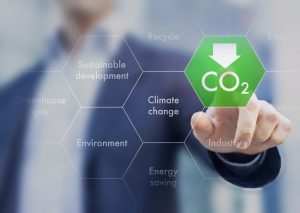Greenhouse gas emissions received a lot of press last week. Some of it good, some of it bad and all of it political.
EMISSIONS REDUCTION SEMINAR
On Tuesday there was a well-attended and worthwhile half-day seminar on emissions reduction hosted by the Association of Mining and Exploration Companies (AMEC). The overarching sentiment of the seminar was a positive one, and timely too, given that the deadline for public comment and input on the Environmental Protection Authority’s (EPA) greenhouse gas guidelines was only a few days away.
The chairman of the EPA, Dr. Tom Hatton spoke at the seminar along with other government and regulatory heads including, the Hon Bill Johnston MLA, Minister for Mines and Petroleum; Energy; Industrial Relations; the Hon Alannah Mac Tiernan MLC; Mike Rowe, Director General, Department of Water and Environmental Regulation (DWER); and Shayleen Thompson, Executive General Manager, Clean Energy Regulator. The seminar also included input from industry and how they are adapting and implementing technologies and strategies to meet their challenges. It was particularly refreshing to hear the proactive approach taken by Independence Group in implementing innovative approaches to minimise their emissions.
GOVERNMENT AND REGULATORY STRATEGIES
Government representatives didn’t really share anything particularly ground-breaking, and like seasoned poker players, neither did they show their hand. Carbon Farming was plugged along with an overview of the ERF fund portfolio and a reminder that there is a $2 billion Climate Solutions Fund available for suitable projects. Mr. Rowe gave an outline of the DWER’s regulatory stance from an environmental licencing point of view. He highlighted the government strategies that are currently underway including the Energy Transformation Strategy, Renewable Hydrogen Strategy, the future Battery Industry Strategy and the Electric Vehicles Working Group. He outlined a transition to low carbon for the state and outlined the overarching State Policy which was to foster “…new thinking and innovation in how we (in Western Australia) live, commute, plan and operate business”.
EPA COLLABORATIVE, BUT INDEPENDENT
Dr. Hatton, of the EPA outlined the overarching remit of the Authority for objectivity, to put the environment first, notwithstanding the need for reasonably practical guidelines, and to work together with industry. The need for the latter was highlighted in March when the EPA’s proposed assessment guidelines on greenhouse gas emissions was withdrawn. The collective sentiment of the resources sector and AMEC was that the guidelines will put the WA economy and jobs at risk. This commitment to stakeholder communication and collaboration was also highlighted by Minister Johnston at the seminar. His opening talk gave no hint of what he would state in parliament on the following day.
MINISTER JOHNSTON’S PARLIAMENT ADDRESS
In addressing parliament on Wednesday, Minister Johnston made clear that the WA State Government policy to guide decision making on future major projects will be to support the Federal Government’s position of reducing emissions by 28 per cent by 2030; and to achieve net zero greenhouse gas emissions by 2050.
He reiterated the State Government’s intention to work with all sectors of the Western Australian economy towards achieving these targets, and stated in no uncertain terms that “Protecting and creating jobs is, and will always be, our number one priority.” Minister Johnston also said to parliament that the policy will give more clarity to the EPA going forward and that his government will always “…respect the independence of the EPA”.
STATE v FEDERAL AUSTRALIA LABOUR PARTY
Cue the politics then. The gas industry welcomed the policy statement, celebrating the State Government’s willingness to listen to industry. The Federal Labour government took offence, because the State Government has openly sided with so-called Liberal targets and has aligned itself to the Morrison government. Federal Energy and Emissions Reduction Minister Angus Taylor instead was triumphant, as the WA Government had realised the importance of a strong economy while also seeking to reduce emissions.
EPA COMPROMISED
At the very least, the State has given some clarity on their position, but the sentiment of Minister Johnston’s statements and the timing of his address is not a good look. Actions speak far louder than words.
Not only could prioritising jobs over everything else conflict with the DWER policy to foster innovation, but more disturbingly, the Minister’s statements put the EPA in a particularly difficult and compromising position. The Minister said that it would respect the independence of the EPA but has chosen to undermine that by publicly revealing the State’s agenda. The EPA is supposed to be objective and “…not subject to direction by the Minister…”, but surely it would be difficult for the EPA to exercise its independence after this. They will surely feel gagged given that it has not yet had a chance to consider the public submissions on the revised guidelines.
NOW WE WAIT
The EPA stated in March that the Federal targets were insufficient to meet Australia’s obligations under the Paris climate agreement, and it is unlikely that this opinion has changed. A cynic would say that given how quickly and dramatically the EPA reversed its proposed guidelines in March already shows that the EPA is not as independent as it would like to be. We wait with bated breath to see what happens next.
See the link below for a media statement from the Sate Government on the parliamentary address.

